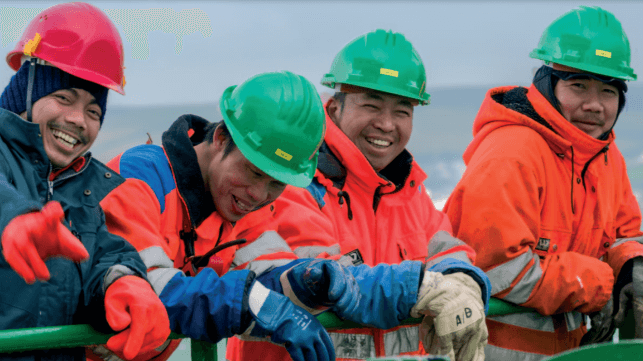Philippines Enacts “Magna Carta” for Seafarer Rights and Training

The Philippines enacted its “Magna Carta” spelling out a comprehensive set of rights for its seafarers primarily working on international ships. The bill was a critical step in addressing the international concerns raised about the training and certification of seafarers while also providing the workforce with a range of protections.
President of the Philippines Ferdinand R. Marcos Jr. hosted a signing ceremony today for the bill in Manila while calling it critical and “very timely” due to the challenges seafarers face including the attacks in the Red Sea. Signing of the bill however had been delayed since February due to last-minute political maneuvers and some controversial provisions that threatened its passage.
The Philippines had come under increased scrutiny for its training standards and accusations of agencies providing licenses for a fee without the proper processes. The Philippines is one of the largest sources of seafarers who in many cases are highly sought after for their skill and work ethic, but the problems have also led to a threat that the EU would stop the recognition of Filipinos’ credentials.
The bill earned the name Magna Carta because of the sweeping rights it enshrines. It provides a comprehensive framework while also setting strict new standards in training, education, and cadetship required for certification.

Signing ceremony for the new bill covering training, certification, and seafarer rights (Philippine News Agency)
“It is our way of telling our seafarers, we see you, we hear you, and we are here to support you,” said President Marcos during the signing ceremony.
The legislation “harmonizes policies” and coordination of the various programs between the Higher Education, Department of Foreign Affairs, the Maritime Industry Authority (MARINA), the Philippines Coast Guard, the Department of Labor and Employment, and the Department of Migrant Workers. MARINA is mandated to oversee maritime education, accredit, regulate, and monitor the training and education institutions that offer degrees and technical courses.
“This historic piece of legislation will ensure the protection and continuous employment of our Filipino sailors, most of whom are employed by foreign shipping companies,” said Ferdinand Martin G. Romualdez, Speaker of the House of Representatives. He said it updates regulations to ensure seafarers can continue to find work and support their families. “With this measure, we hope we can remain to be the largest supplier of seafarers in the world.”
The bill also provides new provisions to address changes in the workforce. It outlines rights for Filipinos working at sea, enshrines the provisions of the Maritime Labour Convention, and protects women sailors against discrimination.

that matters most
Get the latest maritime news delivered to your inbox daily.
It however also continues some controversial measures including a requirement that seafarers post a bond in disability disputes with their employers. Critics said that foreign employers of seafarers are treated more favorably than local employers of Filipinos. Under the appeal process, seafarers would wait for the return of their bond and award until all the appeals are completed which can be a lengthy process.
Speaking at the signing ceremony the president said it was about more than just making sure seafarers are properly paid. He said is about maintaining their safety and ensuring they are treated fairly. The skills development outlined in the legislation he said ensures that seafaring is a meaningful career opportunity for Filipinos.
